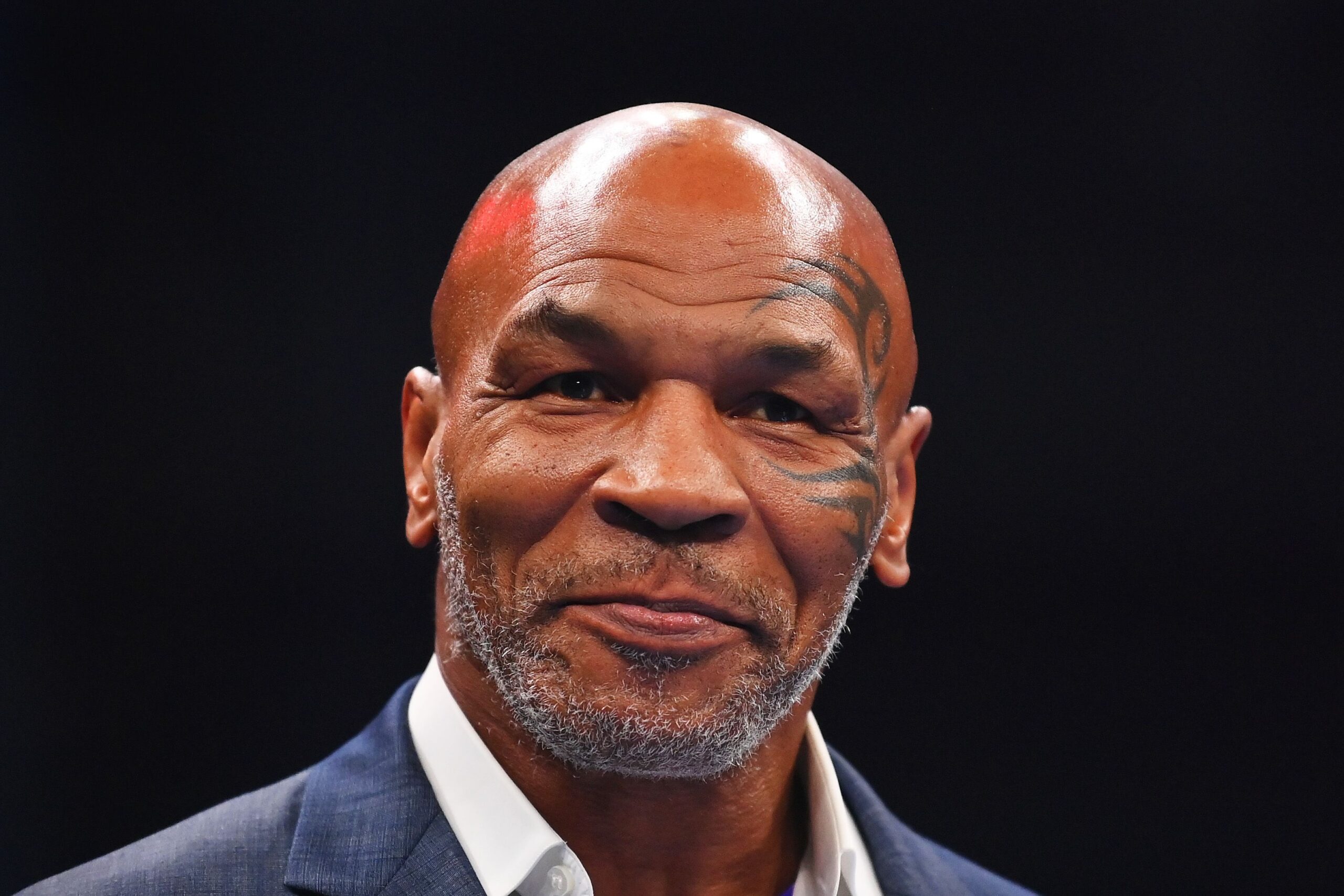Mike Tyson: The Rise, Fall, and Redemption of a Boxing Legend
Mike Tyson, born Michael Gerard Tyson on June 30, 1966, in Brooklyn, New York, is one of the most famous and controversial figures in the history of boxing. Known for his ferocious power, intimidating presence, and tumultuous personal life, Tyson’s career has been a rollercoaster of triumphs, controversies, and comebacks. From his early years as a prodigious talent in the boxing ring to his later struggles with personal demons and eventual redemption, Tyson’s life story is a testament to both the heights and depths of human experience.
Early Life and Introduction to Boxing
Tyson’s early life was marked by hardship and adversity. Raised in the tough neighborhood of Brownsville, Brooklyn, he faced numerous challenges, including poverty, crime, and violence. His mother, Lorna Smith Tyson, struggled to provide for her family, and Tyson’s father abandoned them when he was just a child. By the age of 13, Tyson had been arrested multiple times and was sent to the Tryon School for Boys, a reform school in upstate New York.
It was at Tryon that Tyson’s life took a pivotal turn. There, he met Bobby Stewart, a former boxer and juvenile detention counselor who recognized Tyson’s raw talent and introduced him to the sport of boxing. Stewart later introduced Tyson to the legendary trainer Cus D’Amato, who would become Tyson’s mentor and father figure. Under D’Amato’s guidance, Tyson honed his skills and developed the fearsome style that would later make him a household name.
Lakiha Spicer: The Woman Behind the Legend
Lakiha Spicer, known as Kiki Tyson, is the third wife of Mike Tyson and has played a pivotal role in his life, particularly in his journey of redemption. Born in Philadelphia, Pennsylvania, Spicer comes from a prominent and influential Muslim family. Her father, Shamsud-din Ali, was a well-known imam with significant influence in the Philadelphia Muslim community.
Lakiha Spicer first met Mike Tyson when she was 18 years old, but it wasn’t until years later that their relationship blossomed into a romantic partnership. The two married in 2009, and Spicer has been credited with providing stability and support during some of Tyson’s most challenging times. She stood by him as he battled personal demons, including substance abuse and financial troubles, and helped him rebuild his life after his retirement from boxing.
Spicer’s influence on Tyson has been profound. She encouraged him to seek help for his mental health issues and has been a steady presence in his life, helping him find peace and purpose. Together, the couple has two children, and their marriage has been described as a partnership built on mutual respect and love.
In many ways, Lakiha Spicer is seen as the woman who helped Mike Tyson find redemption. Her unwavering support and love have been instrumental in his transformation from a troubled former athlete to a beloved public figure and family man. Today, Spicer and Tyson continue to navigate life’s challenges together, and their bond remains a testament to the power of love and resilience.
The Rise to Stardom
Mike Tyson rise to stardom was nothing short of meteoric. He made his professional debut on March 6, 1985, at the age of 18, knocking out Hector Mercedes in the first round. This fight set the tone for Tyson’s early career, as he quickly became known for his devastating knockout power and relentless aggression in the ring. By 1986, Tyson had compiled an impressive record of 27-0, with 25 of those victories coming by knockout.
On November 22, 1986, Tyson made history by becoming the youngest heavyweight champion in boxing history at the age of 20. He achieved this feat by defeating Trevor Berbick in the second round, securing the WBC heavyweight title. Tyson’s dominance in the ring continued as he unified the WBA and IBF titles in 1987, becoming the undisputed heavyweight champion of the world.
Tyson’s reign as champion was characterized by a series of brutal knockouts and an aura of invincibility. His combination of speed, power, and technical skill made him a formidable opponent, and he quickly became one of the most feared fighters in the history of the sport. Tyson’s fights were must-see events, and he became a global superstar, earning millions of dollars and garnering widespread acclaim.
Also Read: 3D Product Animation
The Downfall: Legal Troubles and Personal Struggles
Despite his success in the ring, Mike Tyson personal life began to unravel in the late 1980s and early 1990s. His marriage to actress Robin Givens, which began in 1988, quickly became tumultuous and was marred by allegations of domestic abuse. The couple divorced in 1989, and Tyson’s behavior became increasingly erratic.
Mike Tyson downward spiral continued in 1992 when he was convicted of rape and sentenced to six years in prison. The conviction stemmed from an incident involving Desiree Washington, a Miss Black America contestant, who accused Tyson of raping her in an Indianapolis hotel room. Tyson maintained his innocence, but the jury found him guilty, and he was sent to prison. Tyson served three years before being released on parole in 1995.
During his time in prison, Mike Tyson converted to Islam and adopted the name Malik Abdul Aziz. Upon his release, he sought to revive his boxing career, but his time away from the ring had taken its toll. Tyson’s comeback fights were marked by inconsistency, and he struggled to regain the dominance he once enjoyed.
The Infamous Bite and the Decline of His Career
Mike Tyson most infamous moment came on June 28, 1997, during his rematch with Evander Holyfield. In what would become one of the most controversial incidents in sports history, Tyson bit Holyfield’s ear during the third round, leading to his disqualification from the fight. The incident shocked the world and tarnished Tyson’s reputation, resulting in a $3 million fine and a temporary suspension from boxing.
Following the Holyfield incident, Tyson’s career continued to decline. He fought sporadically over the next few years, suffering several defeats and failing to recapture the success of his early years. His financial situation also deteriorated, as he squandered much of his fortune on lavish spending, legal battles, and poor business decisions.
Redemption and Legacy
In the years following his retirement from boxing, Mike Tyson began a journey of personal redemption. He faced his past mistakes head-on and sought to rebuild his life. Tyson became more open about his struggles with mental health, substance abuse, and the challenges he faced growing up. He also embraced his role as a father and devoted himself to his family.
Tyson’s public image underwent a transformation as he reinvented himself as an entertainer and motivational speaker. He appeared in movies, television shows, and even a one-man stage show called “Mike Tyson: Undisputed Truth,” where he candidly discussed the highs and lows of his life. His charisma and honesty endeared him to a new generation of fans, and he became a symbol of resilience and the ability to overcome adversity.
In November 2020, Tyson made a highly anticipated return to the ring at the age of 54 in an exhibition match against Roy Jones Jr. The fight ended in a draw, but Tyson’s performance was widely praised, and it marked a triumphant return to the sport that had made him a legend.
Today, Mike Tyson’s legacy is a complex one. He is remembered as one of the greatest heavyweights in the history of boxing, a fighter who struck fear into the hearts of his opponents and captivated audiences around the world. But his life outside the ring is equally significant, as it serves as a cautionary tale about the pitfalls of fame and the importance of redemption. Tyson’s story is one of survival, resilience, and ultimately, redemption—a testament to the power of the human spirit to overcome even the darkest of times.


